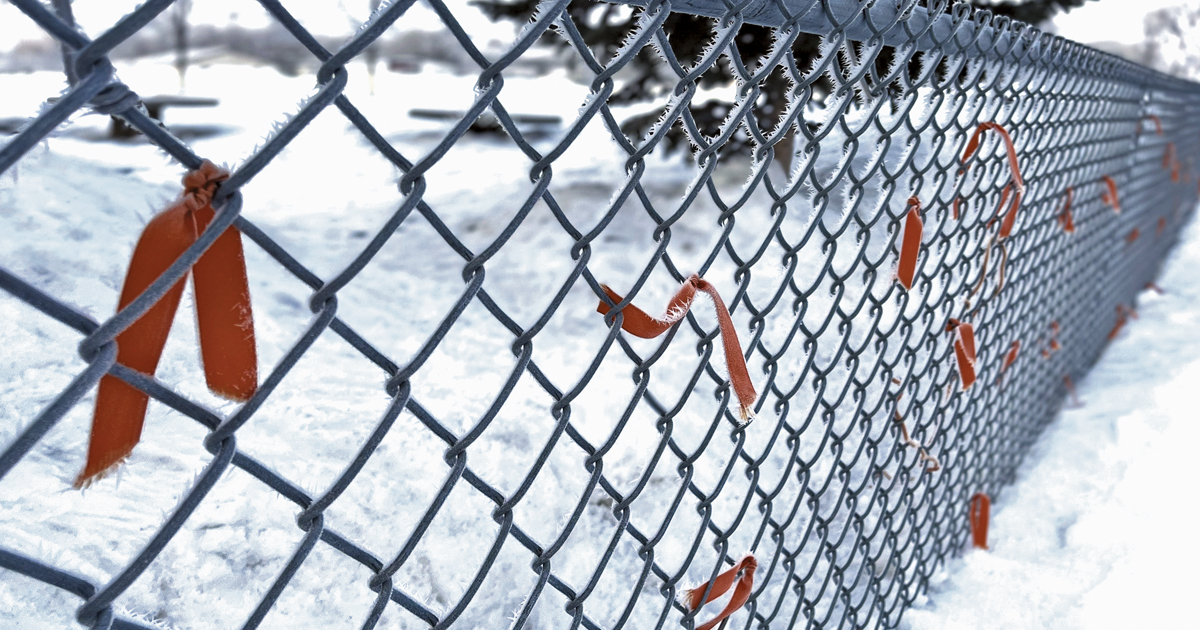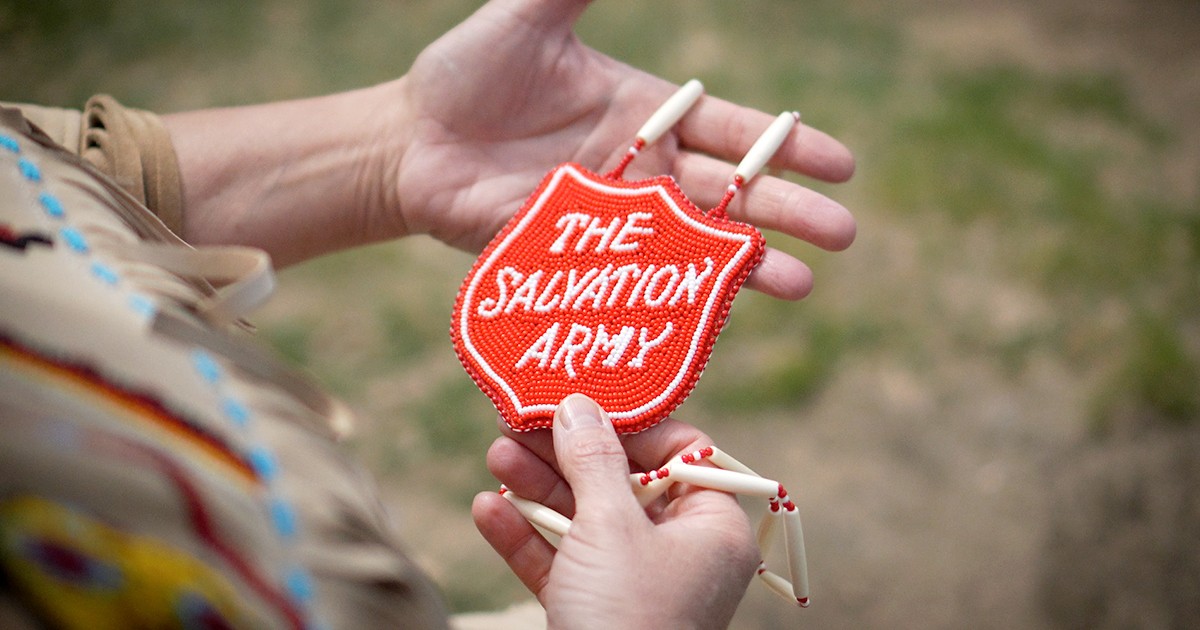(Above) Orange tags tied on a chain-link fence at an elementary school in Winnipeg remind everyone who passes by of the Indigenous children who did not return home from Indian residential schools
“The road we travel is equal in importance to the destination we seek. There are no shortcuts. When it comes to truth and reconciliation, we are forced to go the distance.”—The Honourable Murray Sinclair, former senator and chairman of the Indian Residential Schools Truth and Reconciliation Commission
On May 27, 2021, thousands of people listened as Tk’emlúps te Secwépemc First Nation announced the preliminary findings of a ground-penetrating radar survey, which uncovered the remains of 215 children at the Kamloops Indian Residential School in British Columbia. While this knowledge had been shared by survivors and elders throughout the Truth and Reconciliation Commission gatherings, hearing it this way stilled the nation.
People across Canada responded immediately. Orange shirts were hung in windows, vigils were held, and teddy bears and shoes were placed on doorsteps. A collective grief seemed to drive conversations about reconciliation and right relations to deeper levels.
As the year continued and the number of unmarked graves increased, Canadians were moved to do more. Orange Shirt Day (September 30) became federally recognized as the National Day for Truth and Reconciliation. Activities were co-ordinated, social media campaigns were created and no matter where you found yourself on September 30, there was a sea of orange.
But as night fell and Orange Shirt Day ended, there was a feeling that our nation had completed its requirements for reconciliation. As a follower of Jesus and a pastor, and as a settler and Mi’kmaw woman reclaiming her culture, I felt disgruntled and angry at how easily we awakened on October 1 with a sense of accomplishment.
How could we forget the children who died, the families who were torn apart or the sacred ceremonies, languages and land that were still disconnected from communities?
How can a nation forget so easily when Indigenous children continue to be overrepresented in the foster care system, when Indigenous communities have no access to clean drinking water or when Indigenous women, girls and two-spirited individuals continue to go missing and be murdered at disproportionately high rates?
As followers of Jesus, words such as truth and reconciliation, hope and healing should ring louder and more poignantly as we seek to restore broken treaties and unmet promises.
Reconciliation requires a relationship based in truth, which is often difficult to hear. So please, I ask for you to listen, to allow your heart to hear these words. The church actively participated in the removal of children from their families. The church deemed that Indigenous ways of knowing and being were heretical and dangerous. The church demanded assimilation into a European culture and mindset.
Think about these words. Sit with these truths. But please don’t try to make excuses or justifications.
I have hope in a Creator who loves all of creation. Much hate and injustice have been done in the name of Jesus in this land we now call Canada. The ongoing “discovery” of children’s graves brings to light what has always been here—an intolerance for diversity and difference.
There is an elementary school in my neighbourhood with 215 orange tags tied to the chain-link fence. Over this past year, I’ve seen the force of a bright and powerful Winnipeg sun cause the tags to fade from a vibrant bright orange to a dull shade of salmon. They endured the strong and mighty keewatin (the Ojibway word for northwest winds). A year later, even after a cold and snowy winter, they continue to remind everyone who passes by that 215 children did not return home.
I am inspired by these little resilient tags, probably because they remind me of the Indigenous people who continue to show up and seek right relations while they are still grieving. Who are gifting their strong voices to call out injustice and demand equity for their communities and for the rights of their kin.
They remind me of Indigenous followers of Jesus who work to decolonize theology and unequivocally worship Jesus with the heartbeat of a drum, through the burning of sweetgrass or by praying in a sweat. I am inspired by their brilliance, commitment to the truth and unwavering hope for this generation and the generations to come.
Because even though a year has passed since the findings in Kamloops, the time for truth and reconciliation is now.
Over the next few months, join Captain Porter and others as we continue to learn and discuss walking in right relations in this new series, Journey of Reconciliation.
Captain Crystal Porter is the associate territorial Indigenous ministries consultant and divisional Indigenous ministries consultant in the Prairie Division.
Photo: Cpt Crystal Porter
This story is from:










Comment
On Saturday, June 11, 2022, Natalia said:
On Friday, May 27, 2022, Linda Harris said:
I would like to recommend a book: "Standoff", Why reconciliation fails Indigenous People and how to fix it, by Bruce McIvor (Dr. McIvor is a Manitoba Metis and one of Canada's leading lawyers in Aboriginal Law).
On Friday, May 27, 2022, Lisa Baker said:
This is a powerful article, a great reminder and a challenge to not forget our past; to honour and uphold those who are still grieving and to show love and partnership with our First Nations communities.
Leave a Comment